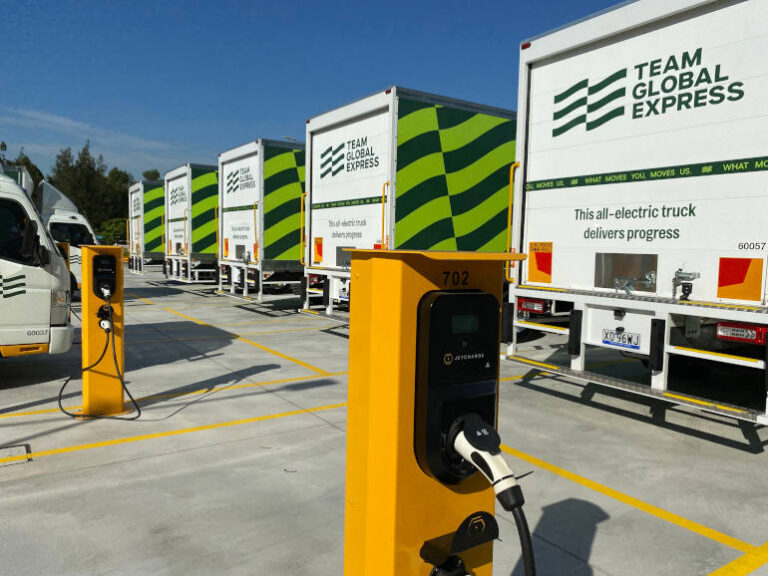Tim Washington, co-founder and CEO of EV charging provider JET Charge, joins Fleet News Group podcast host Caroline Falls again, to talk about trials and pet projects for the antipodean fleet audience.
In part 1, aired on Monday May 6, they talked, among other things, about why Australia is set to buck trends of the US and UK where EV sales are slowing. Australia is more receptive to Chinese brands, said Washington, and it has no manufacturing to protect.
This time, he talks more about the charge-as-a-service business model Jet Charge has dreamed up and won support for — a three-year trial — from the Australian Renewable Energy Agency.
“The trial is designed to break down the last barrier for transition. Essentially, what we’re trying to do is to get the cost of infrastructure and the cost of electricity below the cost of refuelling your petrol or diesel vehicle. We know that for more modern electric vehicles, especially affordable electric vehicles, total cost of ownership over a five-year period is at parity or lower now for a lot of fleets. But charging infrastructure is still one of those things where there’s quite a bit of expenditure upfront.
“And so what we’re trying to do is to basically get that cost down and take away those reasons to not transition.”
Jet Charge may have started out as a Melbourne installer of Tesla chargers in homes but it has grown in the past decade since into an-end-to-end EV charging infrastructure technology business.
“What that means is that for any fleets that are looking to transition to electric vehicles, we take care of everything there is to do on the charging side. So that charging is never a barrier for fleets wanting to transition. And that’s regardless of whether that’s in your employee homes, at your depots or in commercial buildings,” said Washington.
He nominated his favourite project at the moment as a bidirectional charging project or VTG project in Exmouth, in Western Australia, launched in April with WA distribution network provider Horizon Power. The project involves seven Nissan Leafs and seven vehicle to grid charging stations. The vehicles are used by government people and when they’re not in use they are soaking up solar and sending it to the grid.
“One of the things that really struck me, in all of these conversations about bidirectional charging is just how much of a difference these batteries on wheels are going to make in regional areas and rural towns.”
EVs are going to make a really to tangible difference in the energy setup of some locations around Australia, and around the world, he said.
Washington, who is a former chair of the Electric Vehicle Council, also talks about the need to get right as quickly as possible policy settings on apartment building charging, depot connection to the grid and fire risk and safety of charging electric vehicles.
“The fact that we’re all going to be driving EVs in 2050 is not going to go away,” said Washington, adding, “And so you better come up with a position now because you’re not going to stop people from buying electric vehicles. So I think those are the three things that need solving.”





